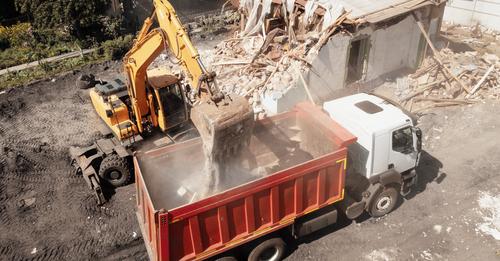On the surface, home demolition and sustainability may seem like concepts at odds with each other. Demolition often conjures images of dust, debris, and destruction, while sustainability brings to mind green landscapes, recycling, and harmony with nature. However, there is an emerging trend that marries these seemingly conflicting ideas – sustainable home demolition. The purpose of this article is to shed light on the crucial role that home demolition companies play in the pursuit of sustainable development.
Traditional home demolition methods have often been wasteful and environmentally damaging. But like many sectors, the demolition industry is waking up to the reality that sustainability is a necessity, not a choice. Old practices are giving way to new techniques and processes designed not just to minimize negative impact, but to contribute positively towards the environment.
Demystifying Home Demolition
Many misconceptions surround home demolition. Some people view it as a destructive process that contributes to waste and pollution. Others see it as a costly and unnecessary step when renovating or redeveloping property. However, home demolition is a complex process involving careful planning, hazard assessment, and waste management, tasks best left to a professional demolition crew.
An overview of the demolition process reveals these complexities. It begins with a comprehensive survey of the site to identify hazardous materials, and a structural survey to determine the best method for demolition. Then, a plan is created outlining every step in the process, including waste disposal. More than just mindless destruction, home demolition is a careful, methodical process.
The Emergence of Sustainable Home Demolition
The construction and home renovation industry is one of the largest producers of waste around the globe. This waste contributes significantly to environmental pollution. However, a new paradigm – sustainable home demolition – is emerging to counter this. Home demolition companies have an important role to play in reducing waste and pollution via sustainable practices.
Sustainable demolition initiatives are already bearing fruit in countries like Australia. The Green Demolition company in Melbourne, for instance, recycles up to 80% of the materials from their demolition. This is a stellar example of how demolition companies can transform their operations to prioritize sustainability, greatly lessening the environmental impact of their activities.
The Role of Demolition Companies in Sustainability
Demolition companies have made great strides in adapting to green practices. Some of these practices include salvaging and repurposing materials from buildings scheduled for demolition instead of sending them to landfills and using less energy-intensive demolition methods that reduce emissions.
The impact of these measures is tangible. Sustainable demolition reduces waste production, lowers greenhouse gas emissions, and promotes recycling, all of which contribute to the preservation of our environment. Furthermore, demolition is an indispensable process in the modern landscape of urban development and redevelopment. By employing sustainable practices, demolition companies can transform their role into that of active protectors of the environment.
Sustainable Demolition: Procedure and Techniques
The growing adoption of green demolition techniques represents a significant shift in the home demolition industry. Single-step demolition, which involves tearing down the entire building in one go, is gradually being replaced by the less harmful process of deconstruction. In deconstruction, buildings are disassembled piece by piece, allowing for a high degree of material recovery and recycling.
A case in point is the Dockery’s Corner project in Victoria, Australia. The building, a 100-year-old hangar, underwent sustainable demolition via deconstruction. As a result, 90 percent of the building materials were either reused or recycled. This case underscores the value of employing methodologies that prioritize sustainability and demonstrates the considerable potential for environmental benefits.
Environmental Impact of Non-Sustainable Demolition
In contrast, traditional demolition methods have a considerably more negative impact on the environment. They often lead to unnecessary waste and energy consumption, contributing to environmental pollution and climate change.
The difference between the impacts of green demolition and conventional methods is stark. Simply put, the former seeks to reduce, recycle and reuse, while the latter often involves waste creation, high energy use, and disposal to landfill. This comparison underscores the importance of a more sustainable approach to demolition.
How to Choose a Sustainable Home Demolition Company
Hiring a sustainable home demolition company can make all the difference in minimizing environmental impacts when renovating or building. But how do you choose the right company? Key factors to consider include the company’s commitment to sustainability, its methodology and its ability to recycle and repurpose materials.
Before hiring, ask potential contractors about their standard practices, whether they incorporate deconstruction, and their recycling procedures. Opt for companies with a strong track record in sustainability, those that can substantiate their claims with concrete examples and projects.
Future of Sustainable Demolition
The future of home demolition lies in increasingly sustainable techniques. Demolition companies must act as advocates for sustainable practices, constantly striving for innovation to lower environmental impact. This might involve techniques such as automated deconstruction or the use of biodegradable materials during the demolition process.
To secure their place in the future, demolition companies must champion sustainability, not only for the survival of their business but more importantly, for the preservation and regeneration of the environment.
Conclusion
In conclusion, sustainable home demolition represents turning point in construction & renovation industry. It plays an essential role in reducing waste, conserving resources and minimizing environmental damage. It’s time for property owners, builders, and demolition contractors to fully embrace sustainable practices, as our future hinges on our ability to act responsibly and protect our environment.










